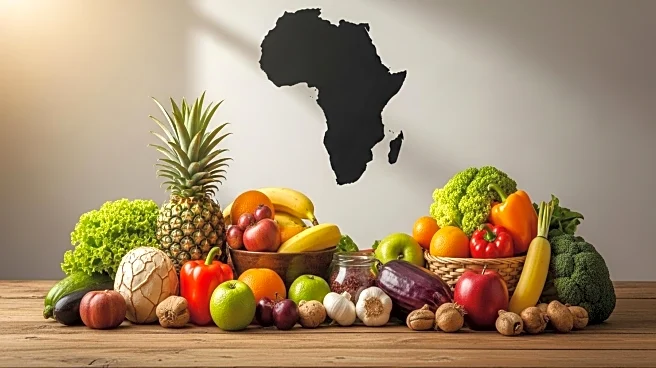What's Happening?
The abrupt halt of a US-funded nutrition program in Nigeria has led to severe consequences, including the death of a malnourished child. The program, previously supported by the US Agency for International Development (USAID), provided therapeutic food packets to children in northeastern Nigeria. The Trump administration's decision to freeze foreign aid and cut support for lifesaving programs has left many families vulnerable. Mercy Corps, the nonprofit implementing the program, reported that the funding cuts have forced the closure of numerous nutrition clinics, affecting thousands of children and pregnant women in the region.
Why It's Important?
The reduction in US foreign aid has significant implications for humanitarian efforts in Nigeria and other affected regions. The cuts threaten the survival of malnourished children and pregnant women, exacerbating the existing food insecurity crisis. The decision to reallocate foreign aid administration under the State Department has been criticized for not maintaining the legacy of USAID's work. The broader impact includes potential setbacks in global health and nutrition initiatives, highlighting the need for sustained international support to address malnutrition and food insecurity.
What's Next?
The US State Department has resumed some food assistance programs in Nigeria, but at a reduced capacity. Aid organizations are working to reopen nutrition clinics and provide temporary relief, though funding remains insufficient to meet the needs of all affected communities. The Trump administration is pursuing further foreign aid cuts, which could lead to additional challenges for humanitarian efforts. Stakeholders are advocating for continued support to prevent further loss of life and to sustain progress in combating malnutrition.
Beyond the Headlines
The ethical implications of foreign aid cuts raise questions about the responsibility of wealthy nations in supporting vulnerable populations. The decision to prioritize domestic interests over international humanitarian needs could lead to long-term consequences, including increased instability and health crises in affected regions. The situation underscores the importance of global cooperation and the role of foreign aid in promoting international development and security.









